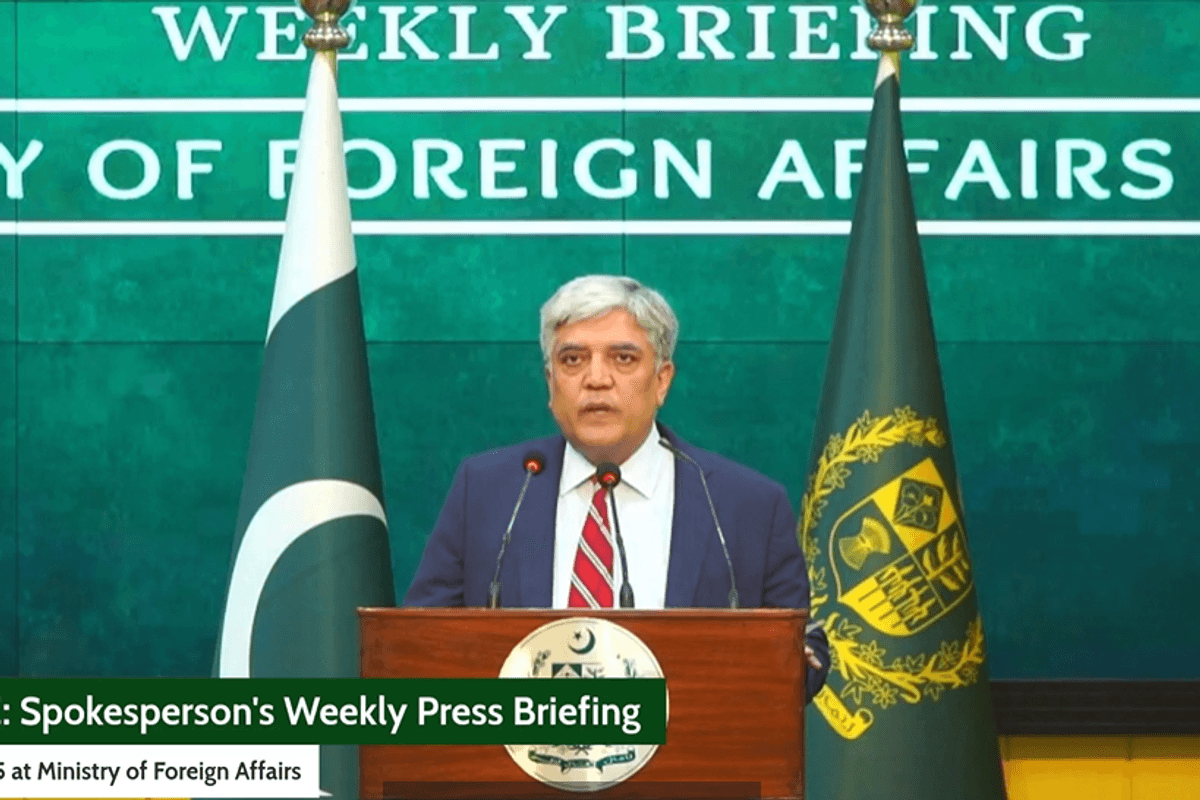Pakistan rejects India's 'new normal' of military confrontation
US President Trump and UN endorsed for Kashmir mediation efforts
News Desk
The News Desk provides timely and factual coverage of national and international events, with an emphasis on accuracy and clarity.

Ministry of Foreign Affairs / Facebook
Tensions ease with weekend ceasefire brokered by American assistance
Pakistan denies requesting ceasefire from 'position of weakness'
Concerns raised about India's 'disregard' for Indus Water Treaty agreements
Pakistan's Foreign Ministry rejected India's "new normal" of military confrontation on Tuesday, insisting that peace is "true strength" as tensions ease following last week's cross-border strikes between the nuclear-armed rivals.
In its official response to Indian Prime Minister Narendra Modi's first address after the confrontation on Monday, Pakistan's Foreign Ministry countered Modi's rhetoric while reaffirming support for international mediation on Kashmir.
It specifically endorsed U.S. President Donald Trump's efforts toward resolution of the Kashmir dispute, which it says "remains a source of instability in South Asia."
"The world is not served by theatrical militarism and grandstanding but by mature leadership, regional cooperation, and respect for international norms," the ministry said.
The exchange comes as both nations observe a fragile ceasefire brokered over the weekend with American assistance, following four days of the most intense military confrontation since their 1999 Kargil conflict.
Pakistan denied Modi's suggestion that Islamabad had sought the ceasefire from a position of weakness, attributing it instead to "facilitation of several friendly countries" that approached Pakistan urging de-escalation.
The ministry described Modi's Monday statements as a "dangerous escalation rooted in misinformation" and "political opportunism," while highlighting Pakistan's support for resolving the Kashmir dispute "in accordance with UN Security Council resolutions."
The statement also raised concerns about the Indus Water Treaty, accusing India of showing "blatant disregard for the sanctity of binding agreements" that have governed shared water resources for decades.







Comments
See what people are discussing